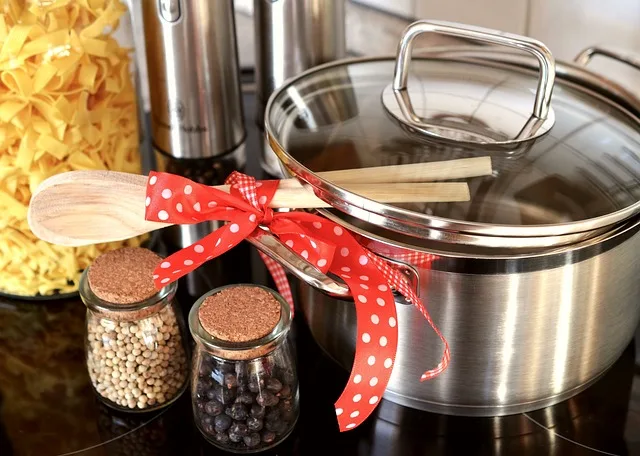But wait, there’s more! If you add a countertop, which usually adds about 1.5 inches, you’re looking at a total height of around 36 inches. Think of it like the perfect height for a kitchen workstation—just right for chopping veggies without straining your back.
Now, if you’re on the taller side or maybe a bit shorter, you might wonder if you can customize this height. Absolutely! Many homeowners opt for custom cabinets to fit their specific needs. Imagine having cabinets that feel like they were made just for you—like a tailored suit, but for your kitchen!
And let’s not forget about the space underneath. Standard bottom cabinets are designed to accommodate a variety of appliances, like dishwashers or trash bins, making your kitchen not just stylish but also functional.

So, whether you’re a culinary wizard or just someone who enjoys a good cup of coffee in the morning, understanding the height of your bottom kitchen cabinets can make a world of difference. It’s all about creating a space that feels just right for you, where every inch is utilized efficiently. After all, a well-designed kitchen is the heart of the home, and you want it to be as comfortable as possible!
The Perfect Height: Understanding Standard Bottom Kitchen Cabinet Dimensions

Standard bottom kitchen cabinet dimensions typically hover around 34.5 inches in height. This measurement is a sweet spot for most homeowners, allowing for comfortable access to your pots, pans, and all those kitchen gadgets you can’t live without. Imagine trying to reach for that fancy mixer on a cabinet that’s too high—frustrating, right? It’s like trying to grab a cookie from the top shelf when you’re just not tall enough!
But wait, there’s more! The depth of these cabinets usually sits at about 24 inches. This depth is designed to provide ample storage without overwhelming your kitchen space. Think of it as the perfect balance between functionality and aesthetics. You want your cabinets to be deep enough to hold your essentials but not so deep that you lose track of what’s in the back. It’s like having a well-organized closet—everything has its place, and you can find what you need without digging through a mountain of stuff.
Raising the Bar: How Tall Should Your Bottom Kitchen Cabinets Really Be?
Typically, bottom kitchen cabinets stand around 34.5 inches tall, but that’s just the starting point. Think of it as the baseline for a good foundation. If you’re on the shorter side, you might want to consider cabinets that are a bit lower, maybe around 30 inches, to avoid straining your back while reaching for that elusive spice jar. On the flip side, if you’re tall, you might appreciate cabinets that are a bit higher, perhaps 36 inches or more, to keep everything within easy reach without bending down like a pretzel.
But wait, there’s more! The height of your countertops also plays a crucial role. If you’re a baking enthusiast, you might want a slightly higher countertop to give you that extra leverage when rolling out dough. It’s all about finding that sweet spot where comfort meets functionality.
And let’s not forget about the aesthetics! The height of your cabinets can influence the overall look of your kitchen. Taller cabinets can create an illusion of space, making your kitchen feel more open and airy. Imagine walking into a kitchen where the cabinets stretch up to the ceiling, giving it that luxurious, custom-built vibe.
So, when you’re planning your kitchen, think about your height, your cooking habits, and the overall look you want to achieve. After all, your kitchen should be a place where you feel comfortable and inspired to whip up your next culinary masterpiece!
From Floor to Counter: The Essential Guide to Bottom Kitchen Cabinet Heights
Typically, bottom kitchen cabinets stand around 34.5 inches tall, but this isn’t a one-size-fits-all situation. Think of it like finding the perfect pair of jeans; it’s all about fit! If you’re on the taller side, you might want to consider raising those cabinets a few inches. Conversely, if you’re more petite, lowering them could save you from a daily workout just to grab a pot.
Now, let’s talk about the space between the counter and the cabinets. A standard countertop height is about 36 inches, which means you’ll have a comfortable working area. But what if you’re a baking enthusiast who needs a bit more elbow room? Adjusting the height of your cabinets can create a more ergonomic setup, making it easier to whip up those delicious treats without straining your back.
And don’t forget about the flooring! The type of flooring you choose can also affect the overall height perception of your cabinets. A thick tile might make your cabinets feel lower, while sleek hardwood can create an illusion of height.
So, as you plan your kitchen, remember that the height of your bottom cabinets isn’t just a number; it’s about creating a space that feels just right for you. After all, your kitchen should be a place where you feel comfortable and inspired to cook!
Kitchen Design 101: Finding the Ideal Height for Bottom Cabinets
So, what’s the magic number? Generally, bottom cabinets are around 34 to 36 inches tall. This height is designed to be comfortable for most people, allowing for easy access to pots, pans, and all those kitchen gadgets we can’t live without. But here’s where it gets interesting: your ideal cabinet height can vary based on your own height and cooking style. If you’re on the taller side, you might want to consider going a bit higher. Think of it like adjusting the seat in your car—everything feels better when it’s just right for you!
Now, let’s talk about functionality. If you’re a passionate cook, you might want your cabinets to be lower, making it easier to grab items without straining your back. On the flip side, if you’re more of a casual chef, a standard height might work perfectly. And don’t forget about the countertop! The height of your bottom cabinets should complement your countertop height, which typically ranges from 36 to 38 inches.
Incorporating pull-out shelves or drawers can also enhance accessibility, making it feel like you have a personal assistant in your kitchen. So, as you dive into your kitchen design journey, remember: the right height for your bottom cabinets isn’t just about aesthetics; it’s about creating a space that feels like home.
Frequently Asked Questions
What factors affect the height of bottom kitchen cabinets?
The height of bottom kitchen cabinets is influenced by several factors including the standard countertop height, user ergonomics, and the overall kitchen design. Additionally, the type of flooring and any appliances that will be integrated can also affect the final cabinet height. Customization options may vary based on individual preferences and specific kitchen layouts.
Can I customize the height of my kitchen cabinets?
Yes, kitchen cabinets can be customized to different heights to suit your space and preferences. This allows for better functionality and aesthetics in your kitchen design.
Are there adjustable options for bottom kitchen cabinet height?
Many kitchen cabinets come with adjustable legs or feet that allow you to modify the height of bottom cabinets. This feature enables you to level the cabinets on uneven floors or customize the height to suit your needs, ensuring a comfortable working space in the kitchen.
What is the standard height of bottom kitchen cabinets?
The typical height for bottom kitchen cabinets is 34.5 inches, which allows for a countertop height of 36 inches when including a standard countertop thickness of 1.5 inches. This height is designed for comfortable use while cooking and preparing food.
How do I choose the right height for my kitchen cabinets?
Selecting the appropriate height for kitchen cabinets involves considering the ceiling height, the average height of users, and the intended use of the cabinets. Standard upper cabinets are typically installed 18 inches above the countertop, while lower cabinets are usually 34-36 inches high. For optimal accessibility, ensure that the cabinet height allows for comfortable reach and use, taking into account any appliances or fixtures that may affect placement.